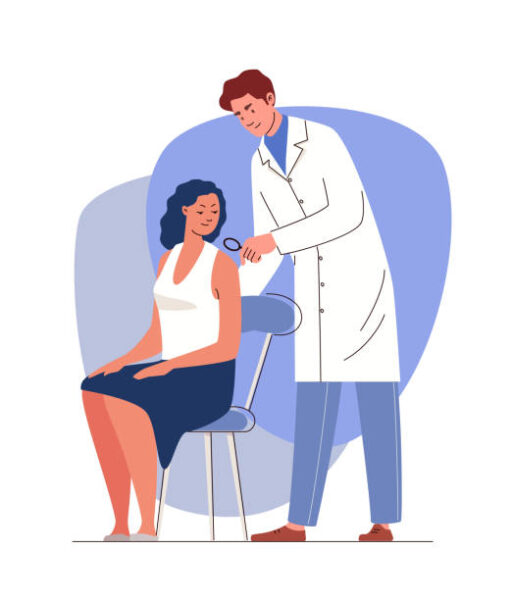Do chronic skin issues give you sleepless nights? It might be the right time to see a dermatologist trained to detect, diagnose and treat skin issues. Most health facilities like Magnolia Dermatology have departments with modern diagnostic and treatment tools. Skin issues such as inflammatory acne cause discomfort and blackheads and may affect your appearance. The dermatologist will treat acne and the associated complications like hyperpigmentation effectively. They improve fine lines, wrinkles, and sagging skin with remedies such as dermal fillers and Botox. These are everyday skin concerns that a dermatologist can treat.
Acne
Acne is a skin condition that can affect anyone and occurs when hair follicles become clogged. The skin issue is an inflammatory disorder that results in lesion outbreaks on the face, back or chest. It occurs when the sebum, dead cells, and hair stick together in the pores leading to the growth of bacteria which causes inflammation and sores. Sometimes acne results from hormonal changes in teenagers and women with hormonal imbalance. Depending on your condition, your dermatologist will recommend hormonal therapy for acne and anti-bacterial treatments.
Psoriasis
The rash on your knees, scalp, elbows, and trunk could be associated with psoriasis. Psoriasis is a chronic skin condition with no cure and causes itchiness, scaly patches, and pain which may interfere with your sleep patterns. The flares may occur in cycles and subside within a few weeks. Your dermatologist will recommend lifestyle changes that improve psoriasis symptoms and recommend medications that reduce the symptoms.
Skin Cancer
Skin cancer has become common as more people beautify their skin with artificial and natural tans. Unfortunately, the UV rays from the sun and tanning machines cause abnormal growth of skin cells resulting in cancer. Detecting skin cancer in the early stages might be challenging, especially if you don’t see a dermatologist often. The dermatologist will detect the changes on the skin and recommend a biopsy for skin cancer. Therefore, you should check the skin for suspicious changes, avoid UV rays and see a dermatologist frequently to prevent skin cancer.
Fine Lines, Wrinkles, and Skin Sagging
Although fine lines and wrinkles might not pose any health concern, they lower your self-esteem. The signs of aging may occur due to old age, drug use, and exposure to UV rays. Your dermatologist will recommend dermal fillers and Botox to treat fine lines and wrinkles. They may offer effective sunscreen to prevent the deterioration associated with sun exposure.
Moles And Warts
Some people may view moles as beauty marks, but some see them as imperfections. Your dermatologist may remove the moles on the skin through minimally invasive procedures. Warts that develop in the mouth and the private areas may indicate underlying conditions such as STDs. The dermatologist will recommend further testing and treatment of the underlying health conditions.
A dermatologist will keep your skin healthy; you should visit their office annually. The dermatologist will treat skin issues such as acne resulting from the infection of the hair follicles and sebaceous glands. Additionally, they recommend lifestyle changes and treatment to deal with the symptoms of psoriasis. The dermatologist will detect skin cancer early and recommend a biopsy and treatment. Additionally, they will deal with malignant moles and recommend further screening for moles in the mouth and private areas.




